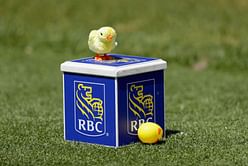
The Masters Tournament, also called simply the Masters or the U.S. Masters outside of North America, is one of the four major golf championships for men in professional golf. The first major golf event of the year, the Masters, is slated for the first week of April. Unlike other prestigious tournaments, the Masters is always held at the private Augusta National Golf Club in Augusta, Georgia.
Bobby Jones, the only amateur player, and investment banker Clifford Roberts established the Masters Tournament. After his momentous triumph in 1930, Jones purchased the former plant nursery and worked with Alister MacKenzie, the course architect, to construct Augusta National. First held in 1934, the Masters is an official money event on the PGA, European, and Japanese tours. The Augusta National Golf Club is the host club. Hence, it's an invitation-only event with fewer players than in other major championships. The 2024 Masters is also held in April each year, and with so many fascinating stories, this year's tournament has all the makings of being one to remember.
Many fascinating traditions are connected to the occasion, but one that is often overlooked is the caddies! Professional golfers receive different payment amounts, which are negotiated with their caddie. Not just the Masters, but all PGA tournaments fall under this category. But for this article, we will concentrate on the Master.
What does a caddie take back from the tournament?
Caddies at the Masters have the potential to make between $1500 and $3000. In addition, the golfer and each caddie concur that the caddie will get a share of the player's revenue. Even if the agreements contain broad boundaries, the golfer and caddy ultimately determine how much money to exchange.
Regarding percentage, though, most of the payout is believed to be between five and 10 percent of the golfer's earnings from that specific event. This suggests that there's a lot on the line for both the player and the caddie. Unlike many other sports, the payout for each event is based on performance. Golf is, therefore, a true bottom-line business.
According to Golf Digest, on March 17, Ted Scott, Scottie Scheffler's caddie, was already receiving close to $1 million in pay for 2023 as of last month. With Scheffler's $11.6 million plus revenue this year, the five to 10 percent caddie charge seems reasonable. Scott may have made even more than the customary 10 percent share in this case.
The eventual winner of the 2022 Masters, Scheffler, was given a $2.7 million prize. If the 10 percent prediction comes to pass, Scott would have made an additional $270,000 for his four days of labor. There will be a well-paid winner in 2023 since the reward money should remain the same. Based on these figures, many more aspiring caddies may wish to play golf with a professional golfer for a day.
Also read: How Much Does It Cost to Play in the Masters Tournament?
Who is allowed to caddy for the Masters competition?
In 1983, six years after Roberts died in 1977, players could bring their caddy to the tournament. All Masters participants were required, until 1983, to use an Augusta National Club caddy, who was, by club custom, always an African-American man. Co-founder Clifford Roberts said (via The Guardian):
"As long as I'm alive, golfers will be white, and caddies will be black."
FAQ's on how much do the caddies make at the Masters' tournament?
A. As of 2023, A. Ted Scott is the highest-paid caddy. He was carrying Scottie Scheffler's bag when he won the major in 2022. The two have been working together since 2021. Scheffler is a former Masters winner. Ted Scott reportedly made about $843,600 in 2023, with a base salary of $135,000.
A. A popular misconception is that caddies often earn between $1,500 and $3,000 per tournament. Furthermore, each caddie and the golfer have an agreement in which the caddie will receive a portion of the player's earnings.
A. Up until 1983, Augusta had to supply the local caddies for the players. If a player plays at Augusta outside of Masters week, they are still required to hire local caddies.
A. 10% of the winner's purse goes to the caddie; if the player places in the top five, they earn 7%; and for everything else, they get 5%. Both the golfer and the caddie have the option to change this, though.









